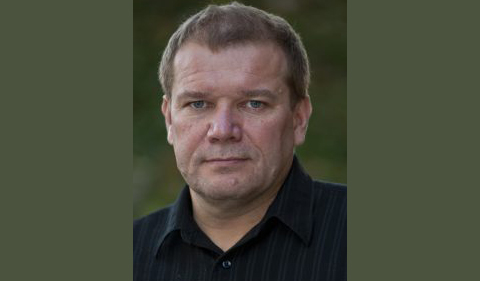
Michal Kowalewski – Florida Museum photo by Jeff Gage
The Geological Sciences Colloquium Series presents Michal Kowalewski on “Tales Told by Dead Shells: Paleobiological Approaches to Historical Ecology and Conservation” on Nov. 8 at 2 p.m. in 245 Walter Hall.
Kowalewski is the John L. and Beverly A. Thompson Chair of Invertebrate Paleontology at the Florida Museum of Natural History.
Abstract: There is a growing realization that the youngest fossil record (the past centuries and millennia) can provide critical insights into the natural state and long-term stability of ecosystems that are currently deteriorating due to human impacts. Case studies from Mexico, USA, and Italy demonstrate that dead skeletal remains, represented by copious shells of aquatic mollusks, provide a rich biological record of previous centuries and millennia. These records can be used to improve our understanding of natural ecosystems, including their past history and current state. The knowledge gained using this novel approach (Conservation Paleobiology) makes it possible to assess the long-term stability of natural systems, measure the magnitude of recent changes resulting from human impacts, and evaluate the efficacy of restoration efforts.
Upcoming Colloquia
Kenneth Brown of West Virginia University on “Crystals as archives into Igneous systems and processes: exploring potassium feldspar megacrysts in granites and granodiorites” on Nov. 17 at 4:10 p.m. in Clippinger 205.
Lindsey Schafer on “Statistical analysis of mining parameters to create empirical models to predict mine pool formation in underground coal mines” and Fred Twumasi on “Modeling of hydrological data to predict mine pool formation and possible discharge locations in underground mines” on Dec. 1 at 4:10 p.m. in Clippinger 205. Both are Geological Sciences graduate students.



















Comments